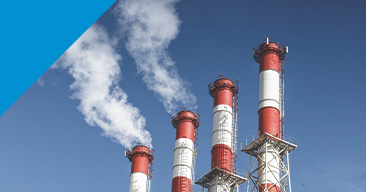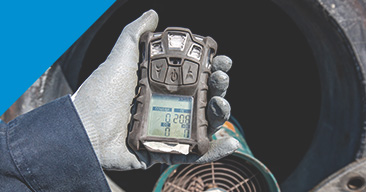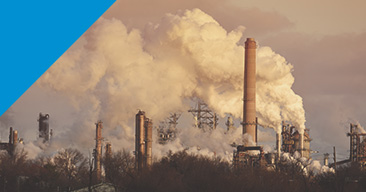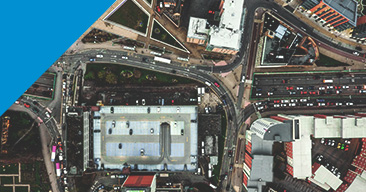
10 Courses

FY22-Air Quality
CLOSED TO BOOKINGS - THIS COURSE HAS NOW TAKEN PLACE - Essentials of LAQM 1 - Introduction to LAQM - 6-29 July 2022 - WEBINAR
This is a pre-recorded webinar. Estimated time to view webinar is 5 hrs. It is available for 2 weeks from 6 to 29 July 2022
Fee = £295.00 plus VAT or 2 credits
The aim of this course is to put local air quality management (LAQM) activities into a scientific, technical and legal context. It explains where LAQM fits into the various schemes for environmental protection and, in particular how it interfaces with health, climate change, development control, and traffic management policy.

FY22-Air Quality
CLOSED TO BOOKINGS - THIS COURSE HAS NOW TAKEN PLACE - Essentials of LAQM 2 - Monitoring and Compliance - 16 May - 5 July 2022
This is a pre-recorded webinar. Estimated time to view webinar is 5 hrs. It is available for 2 weeks from 16 May to 5 July 2022
Fee = £295.00 plus VAT or 2 credits
This course addresses fundamental issues associated with the practicalities of assessing air quality via measurement. The trainer will facilitate a sharing of knowledge and experience of using passive diffusion tubes to monitor concentrations of ambient nitrogen dioxide.

FY22-Air Quality
CLOSED TO BOOKINGS - THIS COURSE HAS NOW TAKEN PLACE - Essentials of LAQM 3 - Review and Assessment - 18-31 July 2022

FY22-Air Quality
CLOSED TO BOOKINGS - THIS COURSE HAS NOW TAKEN PLACE - Essentials of LAQM 4 - Action Planning - 14-27 November 2022
This is a pre-recorded webinar available for 2 weeks from 14 to 27 November 2022. Duration of this webinar is approx. 5 hrs.
Fee = £295.00 plus VAT or 2 credits
This course will examine, in detail, what LAs must do when an AQMA has been declared and improvement action is necessary; it re‑introduces the requirements to be met and the guidance to be followed.

FY22-Air Quality
CLOSED TO BOOKINGS - THIS COURSE HAS NOW TAKEN PLACE - Air Quality Modelling - 29 November 2022
This is an interactive webinar delivered by TEAMS on 29 November 2022 - 10:00 until 16:00.
Fee = £295.00 plus VAT or 2 credits
This course will provide an introduction to the use of atmospheric dispersion models for air quality assessments. The course will explain different approaches to dispersion modelling, and cover how these tools are used to undertake assessments of air quality impacts in support of planning and permit applications, EIAs and the development of local policy. The course will talk through how to set up a roads-based assessment in one of the most commonly used models; ADMS. Attendees will gain a better understanding of why atmospheric dispersion models are needed, how they work and how they’re used for air quality assessments submitted to local authorities.
See Course Programme here.

FY22-Air Quality
CLOSED TO FURTHER BOOKINGS - THIS COURSE HAS NOW TAKEN PLACE - Essentials of LAQM 3 - Review and Assessment - 16-29 January 2023

FY22-Air Quality
CLOSED TO FURTHER BOOKINGS - THIS COURSE HAS NOW TAKEN PLACE - Essentials of LAQM 4 - Action Planning - 13 -26 February 2023
This is a pre-recorded webinar available for 2 weeks from 13 to 26 February 2023. Duration of this webinar is approx. 5 hrs.
Fee = £295.00 plus VAT or 2 credits
This course will examine, in detail, what LAs must do when an AQMA has been declared and improvement action is necessary; it re‑introduces the requirements to be met and the guidance to be followed.

FY22-Air Quality
CLOSED TO BOOKINGS - THIS COURSE HAS NOW TAKEN PLACE - Essentials of LAQM 5 - Management - 27 February - 12 March 2023
This is a pre-recorded webinar. Estimated time to view webinar is 5 hrs. It is available for 2 weeks from 27 February - 12 March 2023
Fee = £295.00 plus VAT or 2 credits
The purpose of this course is to point attendees to the knowledge required to manage the LAQM duties required of a local authority – consequently it will focus on the management rather than technical issues of fulfilling legal requirements, establishing the resource base to comply with those requirements, responsibly assessing the need for action, liaising with stakeholders, ensuring that any action taken is cost effective, and that air quality information is communicated to Defra or the Devolved Administration, and the public in an appropriate manner.

FY22-Air Quality
CLOSED TO BOOKINGS - THIS COURSE HAS NOW TAKEN PLACE - Essentials of LAQM 1 - Introduction to LAQM - 20-31 March 2023
This is a pre-recorded webinar. Estimated time to view webinar is 5 hrs. It is available for 2 weeks from 20-31 March 2023
Fee = £295.00 plus VAT or 2 credits
The aim of this course is to put local air quality management (LAQM) activities into a scientific, technical and legal context. It explains where LAQM fits into the various schemes for environmental protection and, in particular how it interfaces with health, climate change, development control, and traffic management policy.

FY22-Air Quality
CLOSED TO BOOKINGS - THIS COURSE HAS NOW TAKEN PLACE - Essentials of LAQM 2 - Monitoring and Compliance - 20-31 March 2023
This is a pre-recorded webinar. Estimated time to view webinar is 5 hrs. It is available for 2 weeks from 20 March to 31 March 2023
Fee = £295.00 plus VAT or 2 credits
This course addresses fundamental issues associated with the practicalities of assessing air quality via measurement. The trainer will facilitate a sharing of knowledge and experience of using passive diffusion tubes to monitor concentrations of ambient nitrogen dioxide.
